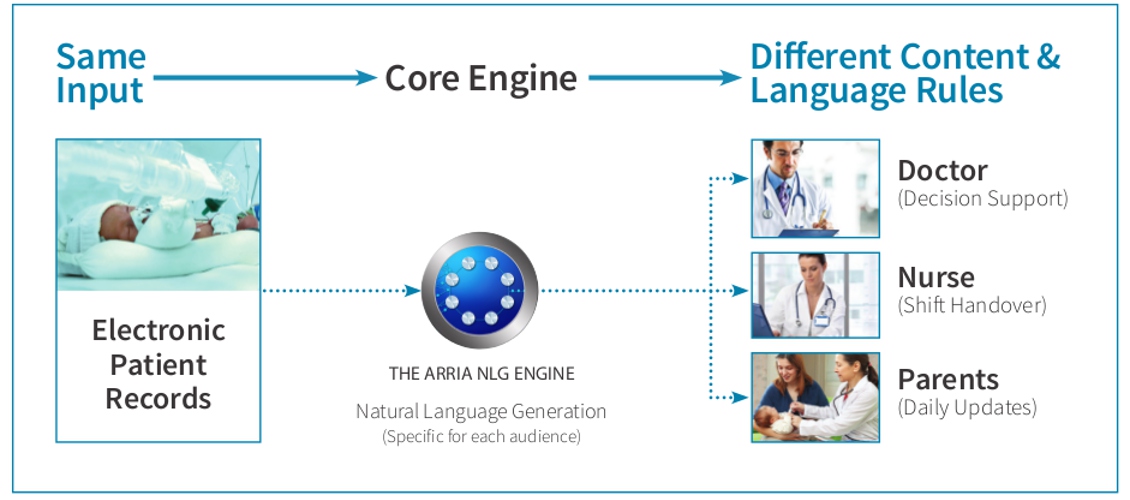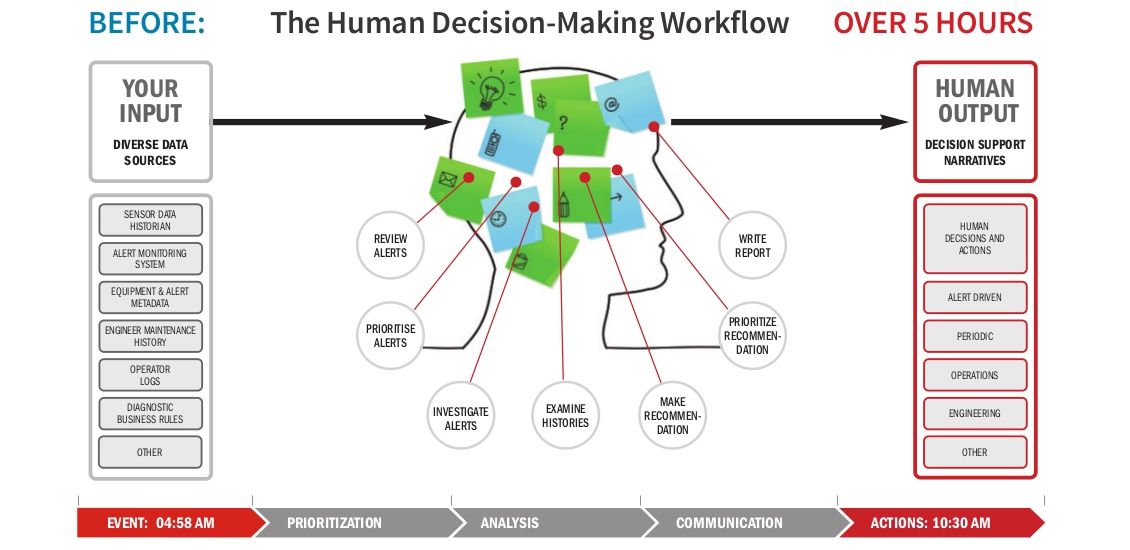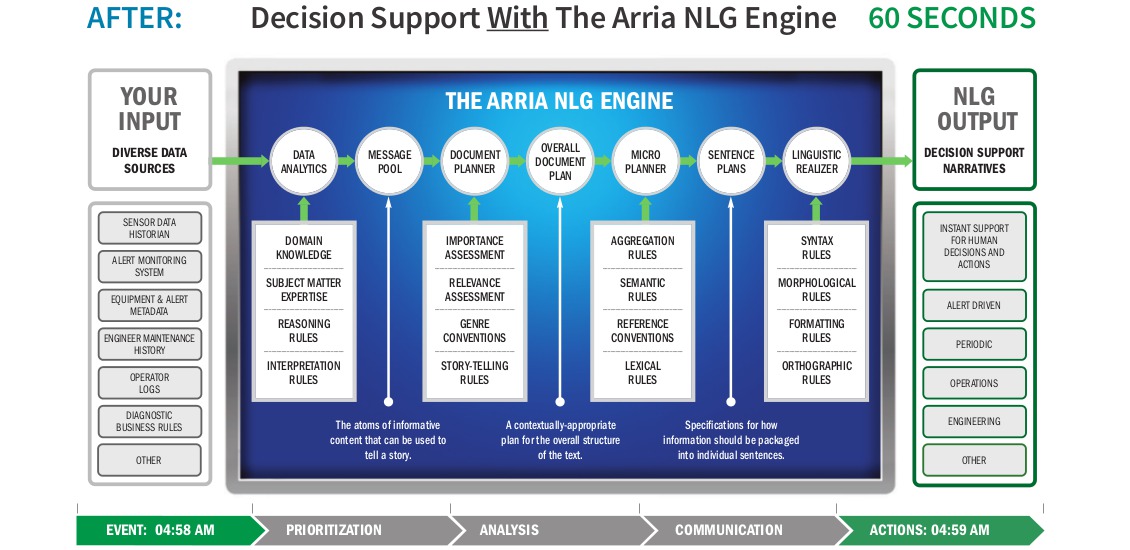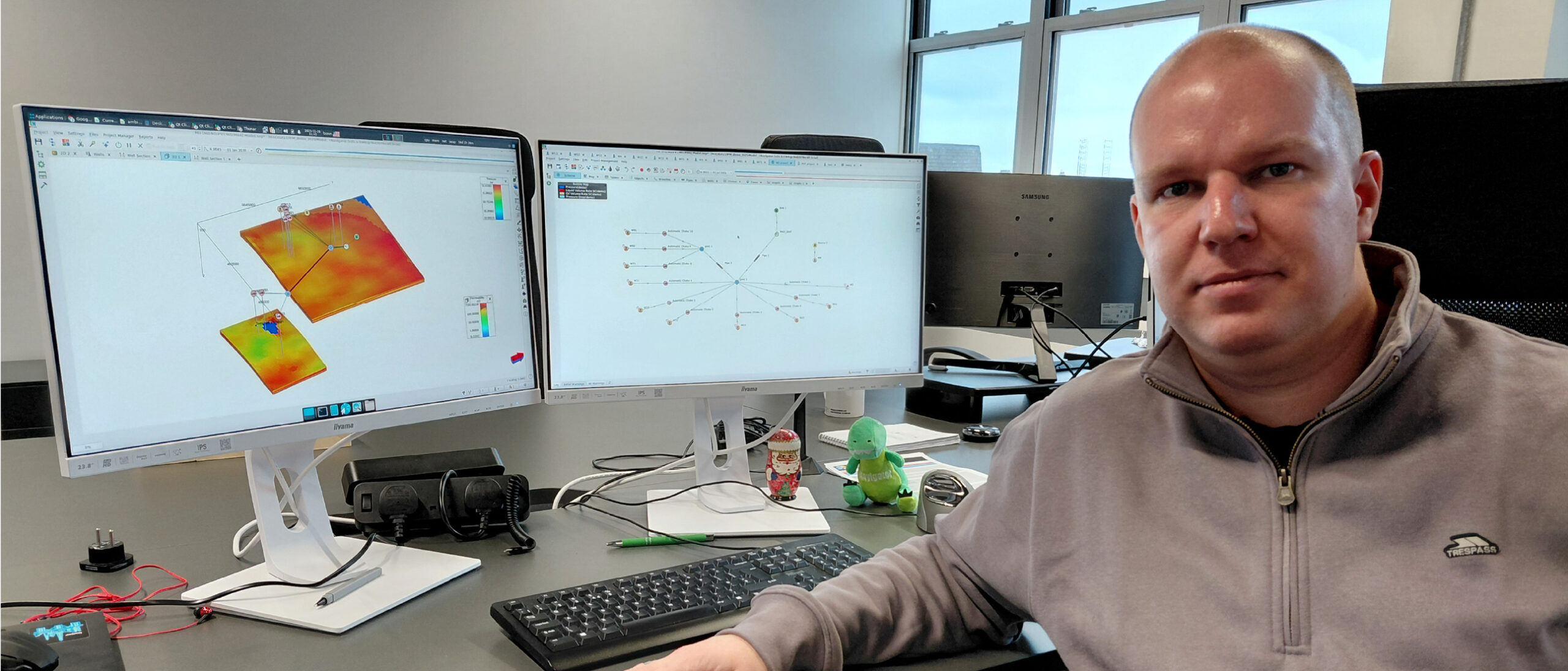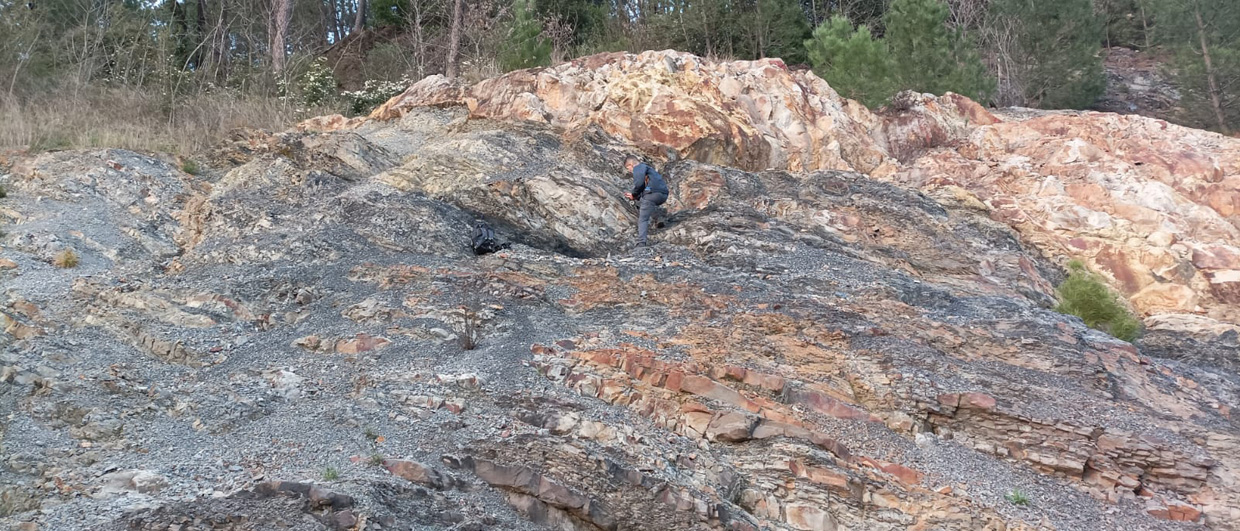On the surface, you might not think that the oil industry would have much in common with the medical community. The mental image that most of us have of a rigger, dressed in coveralls and heavy boots, operating heavy machinery and braving extreme weather, is far removed from the sterile, white-coated figures who perform delicate surgery in climate-controlled operating theatres.
Dig a little deeper, however, and the two worlds overlap far more that you might imagine. Houston, Texas, for example, has two major industries – oil and gas, and medicine – and, via regular ‘Pumps and Pipes’ meetings, they have been exploring together the similarities in the technology they use and the challenges they face.
Professor Ehud Reiter agrees. He is Chief Scientist at Arria NLG plc, with 25 years’ experience working on decision support technologies across both these industries. His focus, and that of Arria NLG, is on using analytics to speed up mission critical decision-making with a technology called Natural Language Generation (NLG). He notes that both doctors and engineers “raise remarkably similar issues and concerns about decision-making, even though they work in very different contexts”. This shouldn’t come as a surprise, given that decision-making is fundamentally about the psychology of human reasoning, regardless of whether the reasoning concerns sick babies or malfunctioning generators.
Addressing Decision-Making Issues
Both engineers and physicians have a number of key complaints when it comes to decision-making:
- It’s too hard to find data: Fundamentally, humans are the same, regardless of what industry they are working in. They are good at making decisions if the key data is available, but finding the right data in a world where ‘big data’ has become a catchphrase can be like finding a needle in a haystack.
- Expertise is a scarce resource: This can make a huge difference in decision-making confidence. In the oil and gas industry, in particular, we are losing experienced staff to retirement without bringing in new expertise at a basic level, with the consequent loss of knowledge and experience.
- Key information is lost at handover: Handover time can be difficult. After a busy shift it is easy to forget details and omit to record every point. Forgetfulness is amplified by fatigue, compounding the issue.
- Staff do not like computers telling them what to do: People want to be in control. Having their actions dictated by a machine can be difficult to accept – and there is often a lack of trust in the relevance and accuracy of the input.
Natural Language Generation (NLG) is a technology that automatically generates textual narratives summarising complex data, providing a decision-support tool equally at home in both medicine and energy, and indeed in many other industries. NLG supports people, and in doing so, addresses the psychological issues outlined above in the following ways:
- Finding Data: NLG pulls together the key facts from disparate data sources into a single, integrated narrative with supporting graphics.
- Scarcer Expertise: NLG captures and ‘bottles’ domain knowledge. Once captured, it is always available to analyse which information is, and is not, important, and to draw conclusions from it.
- Forgetfulness: NLG generates a reliable, comprehensive summary of key facts for shift handover.
- Acceptance: NLG helps people do a better job by sharing information, not giving orders.
Tailored Reports
The BabyTalk system, an NLG application built by Professor Reiter’s team for the Royal Infirmary in Edinburgh, generates summaries of clinical data about babies in neonatal intensive care. Data collected from a variety of sources, including the electronic patient record, goes through Arria’s NLG Engine, producing a variety of reports tailored to the target recipient: the doctor, for whom the reports supply decision-making support; the nurse, for whom a detailed handover document is produced; and the parents, who receive a daily update on their child’s condition and progress.
In the oil and gas industry, Arria is currently providing its technology for discrete equipment areas; specifically, an exception-based alert system for rotating equipment on platforms in the Gulf of Mexico. When an alert indicates a temperature or movement threshold has been breached, the NLG system kicks into action. For any given alert, there are 77.6 million sensor data points that could be relevant, which the NLG Engine assesses, analyses and then feeds into a 500-word report, describing what’s happening and why the situation has arisen, all generated in less than 90 seconds.
All this processing is performed on a standard desktop computer. The NLG Engine knows how to analyse the relevant data, including any data belonging to associated machinery, and how to decide what information is important and reportable. What is more, it also knows how to put together a story to explain the data, emphasising the most significant factors, and how to package information into sentences of the right size and complexity, using the correct grammar and appropriate terminology.
Further applications of the technology are planned in the Gulf of Mexico. Ultimately, Arria envisages a scenario where the NLG Engine could be used not just in discrete areas, but across entire platforms, enabling any level of report to be produced at the touch of a keyboard, ranging from specific equipment analysis to a performance summary for the entire platform, with each type of report being tailored to a specific audience.
Arria’s NLG core technology includes a sophisticated Data Science Framework. This rationalises the processes involved in analysing varied and complex data sets to make it quick and easy to configure analytics processing for new scenarios, and in particular to make it more straightforward to embed knowledge captured from domain experts into the NLG Engine.
The Articulate Oilfield
“Anywhere there’s a lot of data that people struggle to deal with, is a place where this technology could be useful,” says Dr Robert Dale, Chief Strategy Scientist and Chief Technology Officer at Arria NLG. “At the moment we’re looking at electrical submersible pumps and drilling reports, an area that’s generating a great deal of interest. We are starting with system components, but you can easily imagine how the information at that level can be aggregated, making it possible to report on chains of equipment all the way up to the entire platform, correlating and integrating that information for a complete report of the system – ultimately, creating what is really an articulate oil and gas field.”


